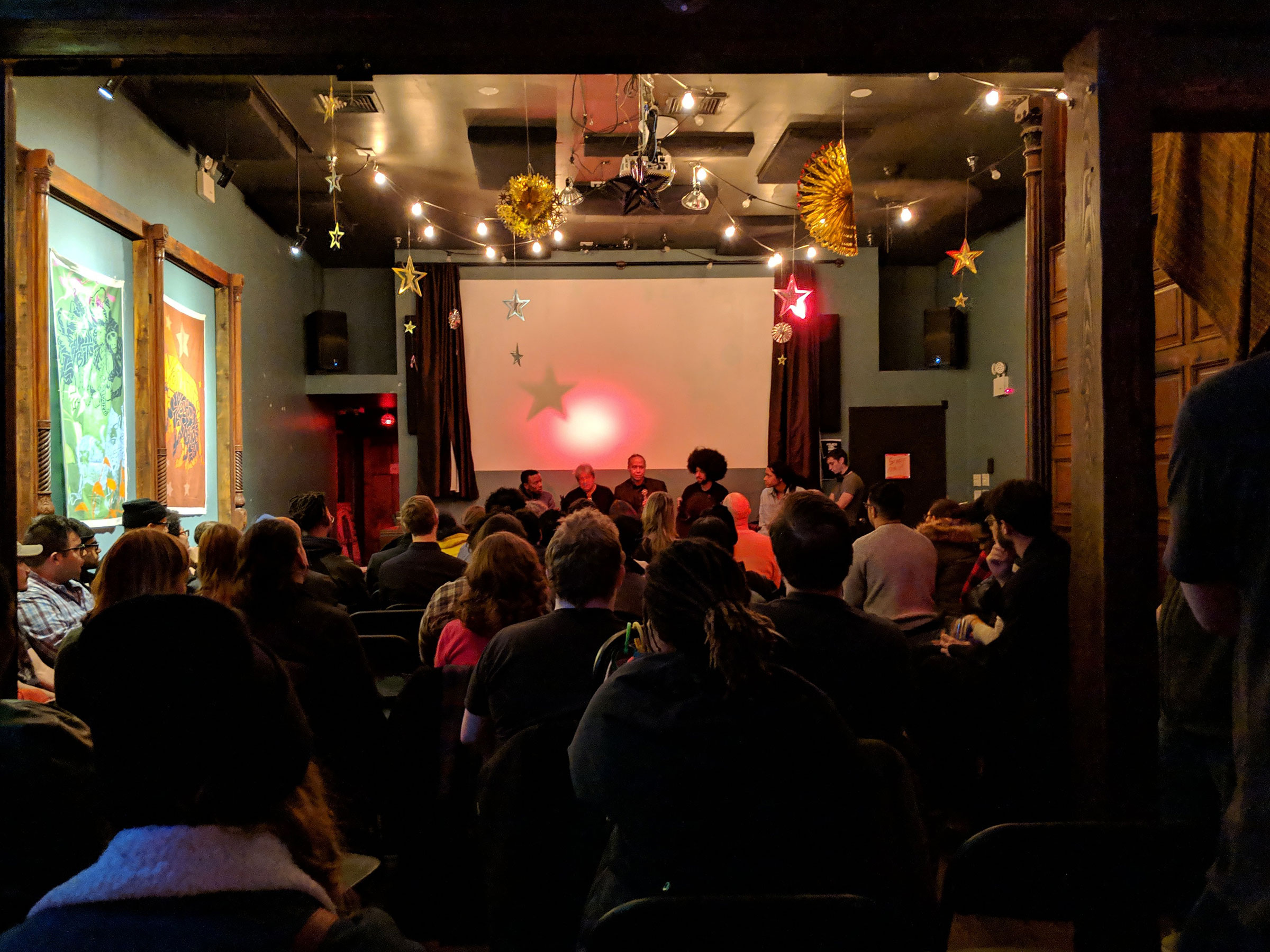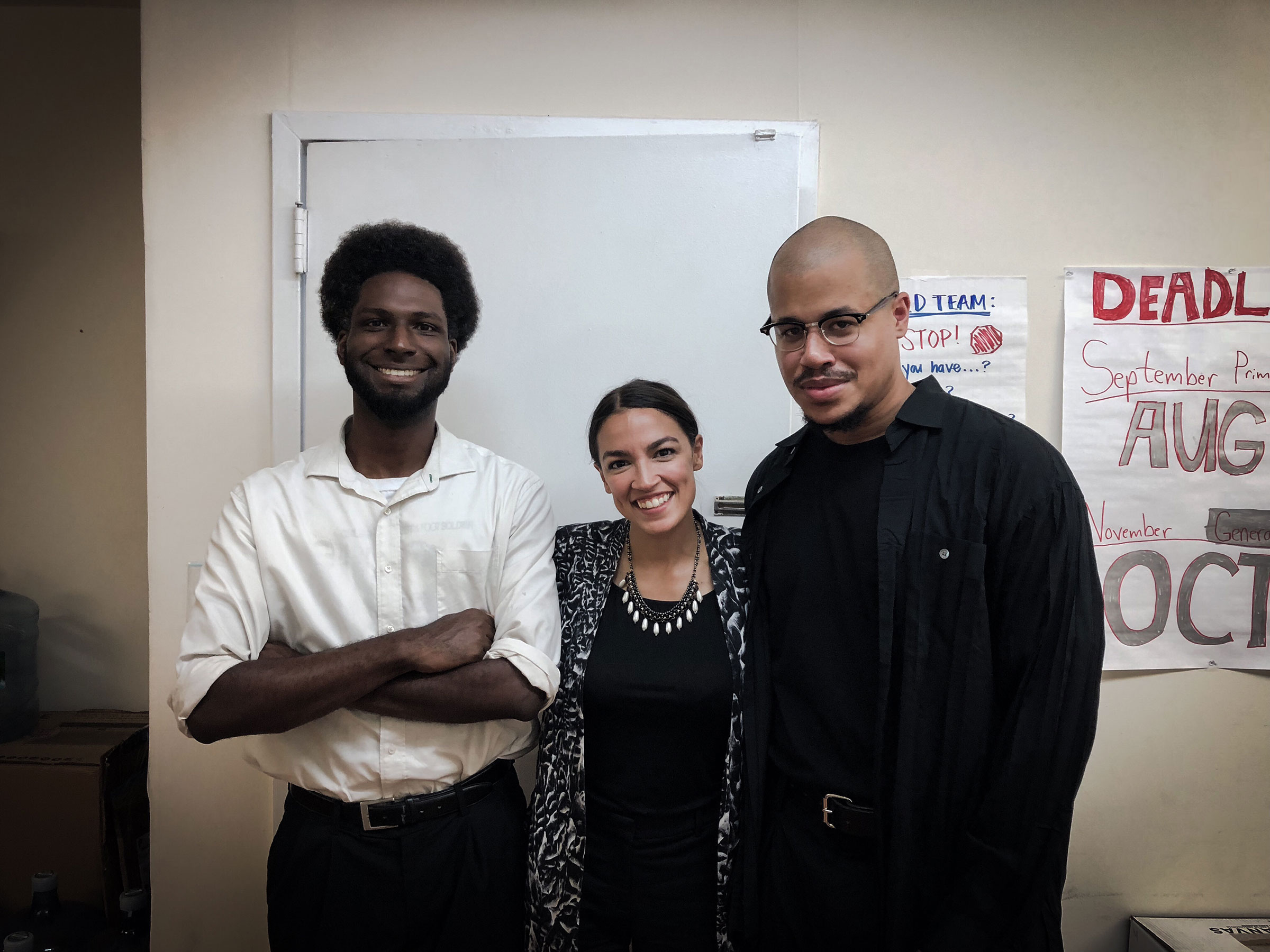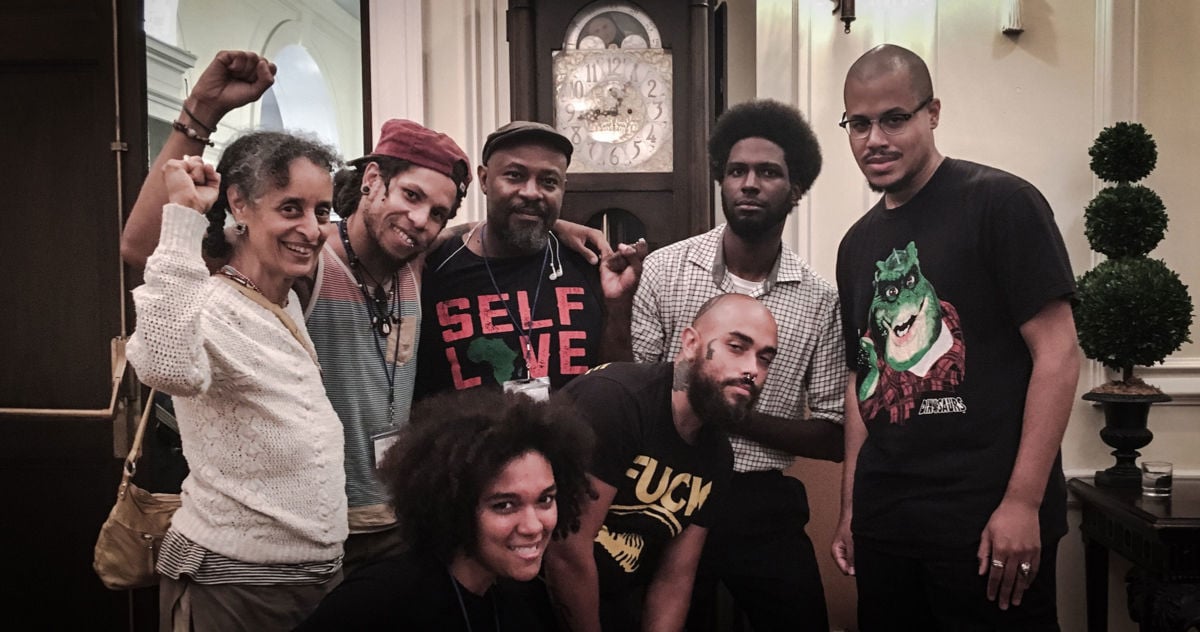Socialism is hitting headlines in a big way these days. The word is no longer off-limits like it was for so many decades here in the United States, and the ideas behind it are becoming more and more popular — especially among young people.
But despite a relatively rapid growth in interest, there are still many misunderstandings and myths about the idea, including a false image of the broader socialist community as a collection of white professors and “Bernie Bros.”
Socialism has never been a movement mostly for and by white men. It has a long and rich tradition within Black communities and other communities of color in the U.S., and within feminist organizing. And globally speaking, the majority of socialists are not white.
One of the more recent arrivals within this tradition is the organization Black Socialists of America (BSA), “a coalition of anti-capitalist, internationalist Black Americans who believe in the core principles of socialism as defined by Karl Marx.”
Truthout spoke with BSA’s co-founder Z, an artist primarily based out of New York City.
Robert Raymond: First of all, how are Black American communities disproportionately impacted by the excesses of capitalism? What are some of the major challenges facing Black American communities today, and how might socialist principles and policies address some of these challenges?
Z: I gotta say, it’s not just the “excesses” of capitalism that are disproportionately impacting us as Black Americans, but capitalism in general. As a matter of fact, capitalism always leads to these “excesses” — they’re a feature of the system! I think this is an important point to make.
If you were just coming out of chattel slavery, and were essentially pushed into a society filled with legislative and sociocultural trappings that kept you enslaved or endangered in new ways, with the core offerings of Reconstruction being wage slavery, how do you think that would impact you and your family for generations?
I know the development of new technology and plenty of other things create this illusion of radical change and/or development, but for us, economically speaking, we’re essentially functioning under the same relations or dynamics, albeit with different manifestations of systemic threats that can, of course, be tied to chattel slavery, Jim Crow and white supremacy more than anything else. It’s residential segregation paired with environmental degradation and the impact these things are having on the health of people in Black and Brown communities — [things like] police brutality, gentrification, food deserts, housing discrimination, etc.
So, with this in mind, how did you come to co-found Black Socialists of America? What’s your mission?
I started Black Socialists of America as a purely informational and aspirational social media platform back in December 2017 after seeing many of the responses to Cornel West criticizing Ta-Nehisi Coates.
You’re referring to Cornel West’s 2017 piece in the Guardian where he reviewed author Ta-Nehisi Coates’s book, We Were Eight Years in Power, and heavily criticized him for failing to connect white supremacy with “the realities of class, empire, and other forms of domination.” There was quite a backlash against West’s piece.
Yeah, some of the responses were coming from Black liberals in academia who were quick to just chalk up West’s criticisms of Coates to some sort of petty jealousy instead of grappling with West’s points. Other responses came from Black Obama supporters still in denial about what Obama’s presidency meant, and who still see West as nothing but a “hater” for his intense criticisms of Obama over the years.
If I’m being blunt, that moment really pissed me off, and it pretty much made me go, “OK, Black leftists at least need a major platform or forum here. People need to know that we exist at the mainstream level. It can’t just be these individual academics and writers anymore.” And that’s kind of all that BSA was at first. I essentially started sharing pictures, videos [and] articles … educating people on the history of Black American Socialism specifically, going all of the way back to the late 1800s, and I would mix this sort of content in with my own personal thoughts and the thoughts of other Black leftists, and in doing this, started to build up a huge platform in a very short amount of time.

After a while, I connected with our other founder Sean, a socialist lawyer working out of Montgomery, Alabama, and in April of last year, we officially became an organization — it hasn’t even been one year! A few months later, we met Kali Akuno, brandon king and others from Cooperation Jackson — a federation of predominantly Black-owned worker cooperatives in Jackson, Mississippi — at the 2018 Fearless Cities conference in New York City, and I’ll never forget it, I walked straight up to Kali in Washington Square Park as he was sitting on the ground, and I basically said something along the lines of, “Just tell us what to do, man; our mission is your mission.”
Kali Akuno and the Cooperation Jackson folks said that they were down for a partnership, and Kali later joined BSA and started to get more involved, and that’s really when we realized that this is going to be much, much more than a magazine, or a think tank or something similar. That’s when we realized that we might be able to seriously challenge the capitalist system in a massive way, and much sooner than we initially expected.
Don’t get it twisted; things are definitely going very slow in many ways at the moment, and this is going to take a lot of time and planning, but it’s because we’re thinking hard and structuring for the long term.
So, what are you focused on right now from an internal standpoint?
Right now, we’re focused on building that revolutionary core and bringing Black Socialists in with expertise and experience in specific areas, which is much more important for us in these early moments than some of your more common organizational procedures that revolve solely around membership numbers; there are plenty of large organizations out there made up of people who aren’t really doing anything in the areas we’re focused on addressing, so this is definitely a “quality over quantity” moment in our development.
We’re currently in the middle of some super important — and secret — work and gearing up for projects that will be hitting at the national level. The public isn’t really aware of what we’ve got planned on this front for the most part, and some of that is intentional — I think we like surprises — but we’re gonna be unveiling some major tools very, very soon!
Right now, the Cooperation Jackson Center for Community Production is in development and anchored by a Fabrication Laboratory, and their folks are being trained to produce some super cool things in an ecologically sound way, so we encourage people to use their imagination and think about what we could be doing there….

Tell me a bit about the tradition of socialism within the Black American community and if/how you see Black Socialists of America as a part of it? What do you think of those who think socialism is just a phenomenon limited to a bunch of white men?
We’re a part of the Black American socialist tradition — it’s not even a question. Our people have been doing mutual aid and cooperation since chattel slavery — since Africa, if we want to be technical here.
Our organization reflects the ethos of Peter H. Clark’s iconic 1877 speech, “Socialism: The Remedy for the Evils of Society” — Clark was the first Black Socialist of America, by the way. Our organization is building off of the work that Ella Baker was doing with the Young Negroes’ Cooperative League back in the 1930s and fully embodies her nonsectarian, non-dogmatic approach in using socialist theory in a human-centered way. Baker was also an open socialist, by the way, so let’s be clear on that.
Our organization is committed to the anti-capitalist internationalism described in Huey P. Newton’s “Intercommunalism” works and reflects the revolutionary, anti-capitalist, feminist intersectionality that bell hooks was talking about way back in the early ’80s before liberals co-opted the terminology.
The proof is in the pudding. We exist and we’ve existed in this country for well over a century now — well before Bernie Sanders was even born or his family came to the United States.
What strategies have you been adopting in order to achieve the mission of Black Socialists of America?
We are not even 1 percent of the way in on achieving the mission of our organization, in my view.
Our mission is to reach a communist society — a “higher phase” one, for any Marxist sticklers out there. Before that, we need to reach a socialist society where the workers democratically control the means of production in a decentralized fashion here in the United States, and this must be tied to a socialism international in scope.
Of course, we believe our mission largely starts with mass education and, up until now, we’ve been doing a great job on this front, considering our limited capacity and resources. Not just educating poor and working-class people on what socialism is or means, but educating on how we are to reach a socialist society in a prefigurative and realistic fashion.
While social media and perhaps the addition of some podcasts or something similar will be great, we need to scale up a bit to essentially start producing original video content that is facing outward and can grab and hold people’s attention on social media and other platforms. We also want to engage with pop culture to a large degree, so it’s gonna take a lot more resources for us to start tapping into all of this in the right way.
We’re also focused on practice. Cooperation Jackson, which our own Kali Akuno is co-founder and co-director of, represents the real prefigurative, institutional development work that we’re facilitating the expansion of as an organization, and showcasing in a cool, interactive way.
Of course, we’re not just showcasing the practice going on in Jackson, Mississippi, and other places, but ultimately trying to facilitate the development of similar practice all throughout the United States in poor and working-class Black American communities. The main part of our focus in organizing around labor is going to be basically catalyzing the autonomous spawning of many Cooperation Jacksons in poor and working-class Black communities all throughout the country.
How can people get involved with Black Socialists of America?
If you’re not Black, you can donate resources — money and more — as well as expertise and skills. We gotta say, we’re thankful for the non-Black comrades who have stepped up over the last year or so to do this. We would not be where we are now in terms of development if it weren’t for y’all.
If you are Black and support the mission, reach out to us through the “Join Us” form on our website, and at least become a voting member — if you want to reach us quicker, [email protected] is a good email to try!
Our onboarding process is a bit slow at the moment, because we’re all handling a lot of different things at once, but we do our best to get back to everyone. Our plan is to open things up more in the future, but there are some deep structural things we still need to work out before this happens.
This interview has been lightly edited for clarity.
Join us in defending the truth before it’s too late
The future of independent journalism is uncertain, and the consequences of losing it are too grave to ignore. To ensure Truthout remains safe, strong, and free, we need to raise $46,000 in the next 7 days. Every dollar raised goes directly toward the costs of producing news you can trust.
Please give what you can — because by supporting us with a tax-deductible donation, you’re not just preserving a source of news, you’re helping to safeguard what’s left of our democracy.
